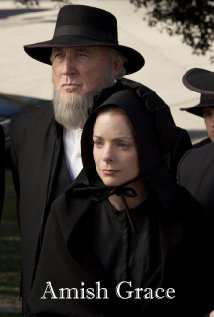Faith and Patriotism: John Wayne
By Karen Edmisten
Actor John Wayne, known as the “Duke,” was an embodiment of masculinity and patriotism.
Wayne appeared in more than 175 movies. He won an Academy Award for his role as Rooster Cogburn in the 1969 version of TRUE GRIT, but is most remembered for his iconic starring roles in movies directed by John Ford and Howard Hawks. Also, he still consistently polls among the top five favorite male movie stars done annually by the Harris poll company. He’s at No. 4 in the poll released in early 2016, and No. 1 among men.
With his Scotch-Irish bloodline, Wayne was raised a Presbyterian, but as he grew into the beloved legend we all knew and love, he didn’t publicly walk in faith.
His first wife, Josie, prayed for his conversion and convinced him to attend numerous parish events with her. Wayne married three devout Catholic women and all seven of his children were raised Catholic. One of his sons said he wasn’t religious, but another said he would hand-write letters to God. Wayne’s son Michael thought his father was a man who quietly believed in God.
“There must be a higher power,” Wayne reportedly said the year he died, “or how does all this stuff work?”
A few days before his death, he accepted to Catholicism.
What is most clear about John Wayne, however, was his patriotism. He was a committed conservative Republican. He played this role in public and on screen. His portrayals of the rugged individual in his westerns to the red-blooded American hero in his war films, Wayne’s film beliefs and behaviors lined with those of his real life.
“Sure I wave the American flag,” he once said. “Do you know a better flag to wave? Sure I love my country with all her faults. I’m not ashamed of that, never have been, never will be.”
Wayne admired the rugged individualism in 19th Century America. His worldview did not include food stamps and social security.
“I don’t think a fella should be able to sit on his backside and receive welfare. I’d like to know why well-educated idiots keep apologizing for lazy and complaining people who think the world owes them a living.”
Wayne was a founding member of the Motion Picture Alliance for the Preservation of American Ideals. He had a strong hatred for communism. He was a favorite of the Republican Party.
Despite his early upbringing in the Presbyterian Church, Duke never had any denominational loyalty.
In the mid-1960s, Duke was fighting a persistent cough. His wife urged him to have it checked, and since he needed to renew an insurance policy anyway, he had a physical. When he returned to the clinic the next day for results, he was subjected to an extensive round of X-rays. As he waited, he ran into the technician who’d performed the tests. The young tech revealed what he thought the star already knew: it was lung cancer.
John Wayne, whom the whole world saw as invincible, beat the lung cancer, as everyone knew he would. He became a vocal advocate for those fighting the disease, and his family eventually established the John Wayne Cancer Institute.
Then in 1974, when the star began battling repeated respiratory illnesses, he feared that the lung cancer had returned, but the doctors told him not to worry. Symptoms of seemingly unrelated illnesses plagued him over the next few years until finally, in 1978, an accurate diagnosis was made. John Wayne had stomach cancer. He deteriorated quickly. By the following year, he was extremely sick, wasting away, and often hospitalized.
Wayne had watched his friend John Ford suffer from the same kind of cancer just a few years before. Ford had been a Catholic; he died with priests in the room and a rosary in his hand. Ford’s faith and its uplifting effect on his life and death were etched into Wayne’s psyche. Duke remembered the comfort and courage faith had given his friend.
On May 14, 1979, Michael asked his father if it would be okay to have Archbishop Marcos McGrath come and visit. Duke said yes, and the two men spent an afternoon together talking. Wayne agreed that day to call for a priest before he died. Duke had often joked with his family that he was a “cardiac Catholic,” that at the last minute he’d call in a priest. Now he made that promise.
With the end near, Wayne was in constant agony.
Two days before he died, Wayne, in tremendous pain, agreed when his son Patrick asked him if they should call the priest now.
“Yeah,” Duke said, “I think that’s a good idea.”
Father Robert Curtis, UCLA Medical Center chaplain, arrived. He baptized the dying man, probably conditionally, as Wayne had grown up in a Christian church, and administered last rites. That night, Wayne fell into a coma.
“I don’t know the technicalities of the Church …,” Michael said. “But Dad did die in the Church.”
About the Author: Karen Edmisten is the author of several books, including “After Miscarriage: A Catholic Woman’s Companion to Healing and Hope.” This article an edited excerpt from her book, “Deathbed Conversions: Finding Faith at the Finish Line.”
Editors Note: Movieguide® is a non-denominational organization, and would like to emphasize the importance of having a personal relationship with Jesus Christ. The Church is the body of Christ, and is God’s instrument for spreading His good news, but only Jesus saves, and making a decision to follow him is a life transforming choice that shouldn’t be putt off. If you’d like to know more, please contact info@movieguide.org.
Questions or comments? Please write to us here.


 - Content:
- Content: 

